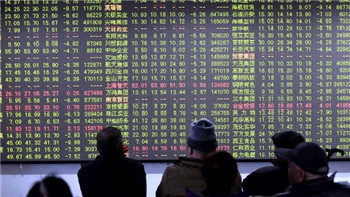
It is tempting to believe that investors in the Chinese markets might have learnt a few lessons from the huge correction in the stock market this summer. Some have but many more seemingly have not.
人們傾向于認為,中國市場的投資者或許已從今夏股市的大回調(diào)中吸取了一些教訓(xùn)。有些人是吸取了教訓(xùn),但更多人似乎并沒有。
The stock market is up 17.7 per cent from its trough in August. Responsible fund managers such as those at China Asset Management recommend clients look at solid blue-chips and companies that pay high dividends, rather than the most speculative plays and high-flying growth counters, giving rise to the hope that the equity market might be more stable in coming months. But earnings continue to deteriorate for a big part of “old China”.
中國股市已較8月低點上漲了17.7%。負責(zé)任的基金經(jīng)理——比如華夏基金管理公司(China Asset Management Co)的經(jīng)理們——建議客戶關(guān)注穩(wěn)健的藍籌股以及分紅大方的公司,避開極具投機性的操作和價格高漲的成長股。這讓人產(chǎn)生了未來幾個月股市會更加穩(wěn)定的希望。但是,在很多傳統(tǒng)行業(yè),公司盈利繼續(xù)惡化。
Third-quarter results of almost 1,400 A-share companies listed before 2009 show non-financial sector earnings plunging 37 per cent compared with the same period a year ago in the worst showing since 2010, Credit Suisse notes. That suggests that if the sell-down was overdone, the subsequent recovery may also be overdone.
瑞信(Credit Suisse)指出,2009年前上市的近1400家A股企業(yè)的第三季度業(yè)績顯示,非金融行業(yè)盈利較去年同期大減37%,為2010年以來最差的季度業(yè)績。這表明,如果說之前的大跌過了頭,那么后來的反彈或許也過頭了。
Meanwhile the speculative caravan has moved on to the corporate bond market, as once again investors take comfort from their belief that there is a financial equivalent of the “iron rice bowl” for them from the government and regulators. Beijing has relaxed the rules on issuance in the corporate bond market in a recent move many believe was meant to offset the funding squeeze in the stock market. At the same time, the debt market can help compensate for the reluctance of banks to lend to clients whose cash flows have fallen with the slowdown in the economy.
與此同時,投機“大篷車”已緊接著開到了公司債市場。投資者再度為以下想法感到心安:政府和監(jiān)管機構(gòu)為他們提供了堪比“鐵飯碗”的保障。近來,北京方面放寬了公司債發(fā)行規(guī)則,許多人認為此舉意在抵消股票市場的資金緊張局面。另一方面,對于銀行不愿向因經(jīng)濟放緩而現(xiàn)金流減少的客戶放貸,債券市場可以起到彌補作用。
It follows, therefore, that any froth in the debt capital market has the government’s blessing, investors believe. This is despite the fact that the official endorsement last spring of the surge in the stock market, meant to facilitate a debt to equity swap for the overly indebted, ended badly.
于是投資者也就認為,債務(wù)資本市場出現(xiàn)任何泡沫都有政府的支持。不過,今年春天官方對股市大漲的背書——意在幫助那些負債過高的企業(yè)把債務(wù)轉(zhuǎn)化為股權(quán)——是以失敗收場的。
So as China looks set to embark on its own quantitative easing, and the central bank moves to cut interest rates more aggressively, investors are being driven by the same quest for yield as their counterparts elsewhere in the world of virtually zero rates. There were five interest rate cuts in 2015, of which three were after the stock market began turning down in June.
所以,當(dāng)中國看來將要啟動自己的量化寬松、中國央行更加猛烈地降息時,中國投資者也就跟世界其他接近零利率的地區(qū)的投資者一樣,被追逐收益率的心理所驅(qū)使。2015年,中國央行降息5次,其中3次發(fā)生在6月股市開始掉頭向下之后。
In the past cash-strapped companies went offshore to borrow because the rates were far more attractive. Today yields in Hong Kong are about 10 per cent compared with 4 per cent onshore. Other hybrid instruments display the same pattern. The preferred shares of the domestic banks returned 7 per cent six months ago; today the yield has come down to 4.5 per cent, says China Asset Management.
過去,資金緊張的公司會到境外舉債,因為境外利率的吸引力要大得多。如今,香港債券收益率大約為10%,內(nèi)地則為4%。其他混合工具的情況也相似。華夏基金表示,6個月前,國內(nèi)銀行優(yōu)先股的股息率為7%,現(xiàn)在已降到了4.5%。
And as has been the case elsewhere, the use of leverage is rising. Banks will let clients in Shanghai leverage the capital they put into the market by up to four or five times, analysts say.
此外,正如其他領(lǐng)域一樣,杠桿的使用在增加。分析師表示,銀行會允許上海客戶將他們投入市場的資金進行4至5倍比例的配資。











